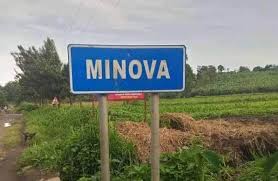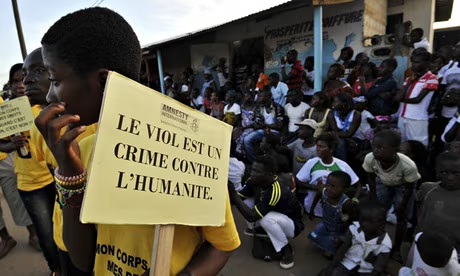16th Ordinary Session of the African Committee of Experts on the Rights and Welfare of the Child, Addis Ababa, Ethiopia – 8th November 2010
IHRDA Statement on ACERWC-ACmHPR Cooperation and the Sentencing to Death of Minors in Sudan
The Institute for Human Rights and Development in Africa (IHRDA) would like to extend its sincere gratitude to the African Committee of Experts on the Rights and Welfare of the Child (ACERWC) for once again, inviting it to participate in the 16th Ordinary Session.
IHRDA would like to congratulate the new members of the ACERWC on their election and warmly welcome them to the ACERWC. As we pledged in our statement last year, IHRDA is committed to working with you to fulfil your mandate collectively and individually. The task ahead in promoting and protecting children’s rights is daunting but we have confidence in your competence and ability to meet the challenges ahead. Once again, congratulations and welcome.
IHRDA also extends special thanks to the ACERWC for granting it Observer Status, thus making it the first organisation to be accorded such Status. IHRDA pledges to fulfil its obligations associated with this Status.
IHRDA is a pan-African, non-governmental organisation that works for the effective use of the protection mechanisms of the African human rights system, which include the African Commission on Human and Peoples’ Rights (ACHPR), the African Committee of Experts on the Rights and Welfare of the Child (ACERWC), the African Court on Human and Peoples’ Rights (ACtHPR) and recently the Courts of the Regional Economic Communities. Through litigation, capacity-building, publications, research and advocacy, IHRDA works to ensure that these mechanisms are accessible and effective for the protection and promotion of human rights in Africa.
IHRDA would further like to commend the ACERWC for the steps it has taken towards strengthening its collaboration with the ACHPR. Of particular mention is the regular participation of the Secretary of the ACERWC, Madame Mariama Mohammed Cissé in the Sessions of the ACHPR, following successful advocacy efforts by IHRDA, Plan International, Save the Children, with support from the African Child Policy Forum (ACPF) and all other child rights organisations present before the ACHPR, which resulted in the adoption of a ‘Resolution on Cooperation Between the African Commission on Human and Peoples’ Rights and the African Committee of Experts on the Rights and Welfare of the Child in Africa’ at the end of the 45th Session in May 2009. By this Resolution, the ACHPR Special Rapporteur on the Rights of Women in Africa has been appointed as the Focal Person to liaise with State Parties, Inter-governmental organisations and non-governmental organisations on matters of child rights in Africa.
As we commend the Secretary of the ACERWC in reaching out to the ACHPR, IHRDA and its partners are working assiduously to ensure that this collaboration is further defined, focused and concretised in actual programmes and activities jointly undertaken by both bodies. To reciprocate the ACHPR’s efforts, IHRDA urges the ACERWC to likewise appoint a Focal point with the ACHPR to work more closely with the Special Rapporteur on the Rights of Women in Africa to strengthen its collaboration with the ACHPR. In the near future, IHRDA hopes to see the ACERWC extend and concretise its collaboration with the ACtHPR.
The state of child rights in Africa still remains a matter of serious concern. IHRDA is particularly interested in the state of the child’s right to nationality on the continent. Though the African Charter on the Rights and Welfare of the Child (ACRWC) clearly grants the child a right to nationality under article 6, this right is yet to be fully realised in a number of African States. IHRDA would therefore be working closely with civil society partners and the ACERWC to fully interpret and define the parameters of article 6 through a General Comment to enable State parties fully guarantee and fulfil this right.
IHRDA is also concerned about the gaps in the incorporation of the ACRWC’s provision in national child rights legislation and the actual implementation thereof. Of particular mention is a recent case from Sudan where four children have been sentenced to death by the Special Court in Nyala South Darfur, Sudan on charges of armed robbery, fomenting war against State, criminal damage and offences against the State. This conviction is in contravention of articles 5(1) and (3) and 17 of the ACRWC which guarantee the child’s right to life and prohibits the death penalty, and the right to fair trial respectively, as well as article 37 of the Convention on the Rights of the Child which prohibits the death penalty for children. The names of the four children are:
- Ibrahim Shrief Yousef (17 years old, of the Birged Tribe);
- Altyeb Mohamed Yagoup (16 years old, of the Zagawa Tribe);
- Abdalla Abdalla Doud (16 years old, of the Gimr Tribe);
- Abdarazig Daoud Abdelseed (15 years, of the Birged Tribe).
There are gaps in the Child Law of 2004 of Sudan which make it possible for the Special Court to impose the death penalty on children. IHRDA is working with its sources in Sudan to provide the ACERWC with more information on this case but would still like to present this issue to the 16th Session and request the ACERWC to also commence investigations into the matter and request Sudan to refrain for executing these children in compliance with its treaty obligations under the ACRWC. IHRDA would further request the ACERWC to request Sudan to immediately bring its Child Law of 2004 and all other law relating to children in full compliance with the ACRWC and CRC.
In conclusion, IHRDA would again like to congratulate the newly-elected Bureau and pledges its support to the ACERWC and its Bureau to ensure that the ACERWC effectively carries out its mandate. The future looks bright with the development of the ACERWC’s Plan of Action (2010-2014), a vibrant Civil Society Forum before the ACERWC’s Sessions and the ACERWC’s cordial relationship with child-focused organisations, as these efforts, efficiently employed, will go a long way to improve the implementation of the ACRWC in Africa.
IHRDA wishes the ACERWC fruitful deliberations and a successful 16th Ordinary Session.





